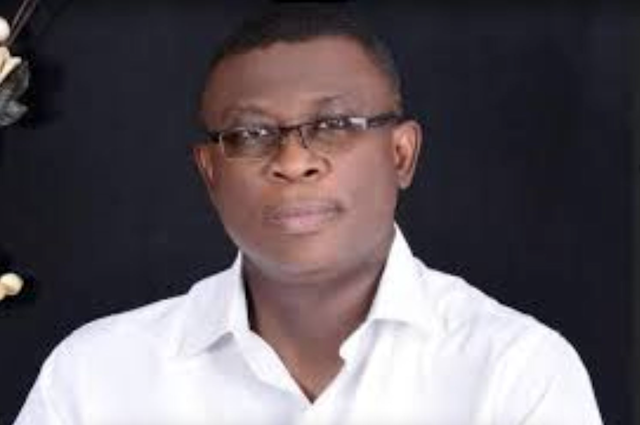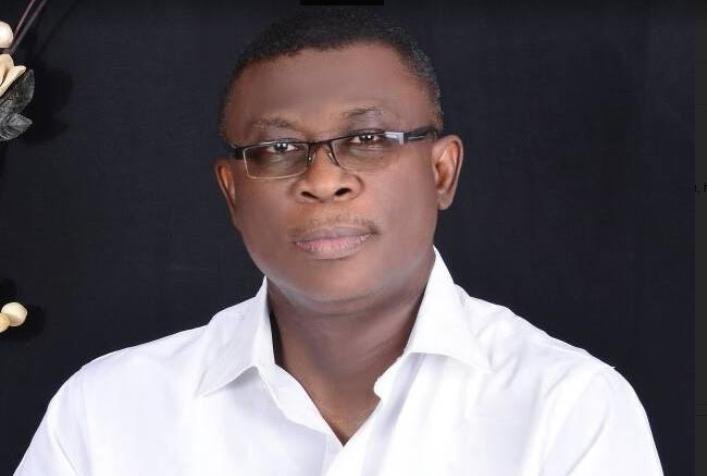I heard Sen. Ned Nwoko’s name for the first time when he was in the House of Representatives between 1999 to 2003. Thereafter, I saw him twice. The first time was when I joined others to protest to INEC office in Asaba in respect of his “stolen” mandate in 2011. He had contested on the platform of the Democratic People’s Party (DPP) to represent Delta North Senatorial District in the Senate. The second time was on June 6, 2011 during the inauguration of the seventh senate. He was one of the guests in the red chamber. I also followed a friend to his house in Abuja once, but he was not home.
I have always seen him as an experienced politician and I still do. He has been in the news recently for two reasons: The first is his agitation for the creation of Anioma State. The rest of Delta State is calm about it because it is a legitimate and old agitation. The only opposition is coming from some people within the proposed Anioma State who do not want to be part of it.
The second was his recent statement and demeanour when he met with some of his constituents. He briefed them about the Okpai Independent Power Project and the Ogwashi Uku Dam. He said he has discussed the power project with the Minister for Budget and National Planning and he assured him that the project will be included in the 2025 budget. But he is impatient to wait till then, so he claimed he approached the Delta State Governor, Elder Sheriff Oborevwori to “pay” for the immediate commencement of the project, but the governor said there is no money. He then said he can attract companies to fund the project, but the governor should give the go ahead.
While I concede that the project is important especially to Delta North, I did not understand why he wants to drag Delta State into a project that is a joint venture between the federal government and private companies. He already has an understanding with the minister to put the project in the 2025 budget, why not also tell the federal government to give the go ahead? Where the governor to accept, which I find absurd, he has to get a budget for it and get the approval of the state house of assembly. As a senator, he should do that at the federal level.
I was disappointed when I watched the video. He had a private meeting with the governor and he was telling the constituents what transpired in a private meeting while being recorded. What is intention of the distinguished senator? To cast the governor in bad light and turn his constituents against him? He is sowing seeds of political discord which is dangerous in Delta State and inimical to him politically.
He talked about the huge disparity between projects going on the Delta North and the other senatorial districts. Truth be told, the immediate past governor, Senator Ifeanyi Okowa, focussed heavily on Delta North to the detriment of the other senatorial districts. The projects in Delta Central and Delta South that Nwoko is referring to are projects either the government of Dr. Emmanuel Uduguan or Sen. Okowa should have done but failed to do.
What prompted me to write this article was his reference to the ongoing flyovers in Effurun-Warri axis. The distinguished senator talked about to ongoing projects in Delta Central and Delta South in what I felt was a sarcastic and demeaning tone. It is true that one of the flyovers is by the junction leading to Osubi, Governor Oborevwori’s hometown, but I need to elaborate. Osubi hosts the first airport in Delta State after the airstrip was relocated from Effurun and upgraded to an airport. Many people – Deltans and non-Deltans – have missed their flights because of the gridlock at that junction.
The gridlock can be so bad that sometimes, it takes you two hours between DSC Roundabout and Effurun Roundabout, a journey of a minute if there is no traffic. When there is traffic everyone is trapped including travellers going to or coming from Bayelsa and Rivers State. So, this flyover is a real solution provider, not just a project sited near the governor’s town. In newspaper articles I had urged the Delta State Government to construct this flyover during the Uduaghan and Okowa time.
The other flyover is the Enerhen Junction flyover. About 43 years ago, my father walked home at about 8pm. We had been expecting him since 6pm.When we saw him, we thought his car broke down but he said he had been in the gridlock which started from Enerhen Junction and stretched all the way into Udu Road. My father parked his car at some point and walked home through short routes. He went back after 11pm to bring his car home. This flyover being constructed is near the boundary of Warri and Effurun, so it is very strategic to the two senatorial districts. Renovation of the Warri Stadium and completion the road to Ode Itsekiri are overdue, but let me stop here.
Senator Nwoko’s outburst is misleading. These projects are meant to provide solutions to problems that have been there for the last 30 to 50 years and more. Enerhen junction flyover specifically is a project the that should have been done during military era. The internally generated revenue from Warri and Effurun could have funded the project and transformed the axis, but the military was not interested in developing the area. Warri and Effurun are cities where Deltans and non-Deltans live. Their problems affect all, just as all benefits from solutions to the problems.
There is absolutely nothing wrong if the governor pays attention to this axis. Warri, stretching to Effurun, used to be second major city in Bendel State after Benin. Over the years, it deteriorated. Successive governments did not carry out the total urban renewal that it needed. The governor is simply starting what his predecessors from the military era should have done.
I have never had any problem with any part of Delta being developed. I remember writing an article titled: “What is Urhobo interest…” I said anywhere being developed in Delta State is in the interest of Urhobo as long as Urhobo people live there, have interest there or use the infrastructure there. I never had problems with Okowa developing Delta North. Where I had problem with Okowa’s government was the neglect of Delta Central. It was too apparent and painful. Delta North could have been developed without neglecting Delta Central or Delta South. But I am not one to deny people their flowers. I was pleasantly surprised and happy when Okowa awarded a contract for the construction of Ewhu-Orere Bridge. Ewhu is my hometown while I have maternal relatives in Orere. Orere town is named after the first son of Ewhu, the co-founder of my town. Incidentally, my father was the first principal of Orere Grammar School, but I have never been there because it is not accessible by road. Senator Okowa, please take your flowers for the bridge. When it is completed in December 2025, as the Delta State Commissioner for Works, Highways and Urban Roads, Comrade Reuben Izeze, assured me, I will step my feet on Orere for the first time.
On the Ogwashi Uku Dam, which Sen Nwoko also mentioned, I heard about it over 25 years ago. Since then, military governors/administrators have come and gone. Four civilian governors, including Dr. Okowa, who hails from Delta North, have been there and did nothing about the dam. Why is the distinguished senator dragging a governor who is barely a year on the seat, in respect of the dam? Work is still ongoing on projects that were not completed in Delta North by Okowa’s government, while new ones are being started. Is it only when jobs Nwoko wants are done that he will acknowledge the works of the Delta State Government in Delta North.
The distinguished senator has the capacity and should emulate the former senator representing Delta Central, HE Ovie Omo-Agege, who attracted projects to Delta Central from the federal government. Maybe he did, but I can’t remember Agege petering Okowa to execute any project in Delta Central. Agege even attracted projects to Delta North, which Nwoko currently represents. Delta North has nine state legislators who should be attracting projects to their constituencies, while Nwoko concentrates on attracting federal government projects to Delta North. Delta North and indeed Delta State can do with more federal presence.
Francis Ewherido is a Newsguru columnist

